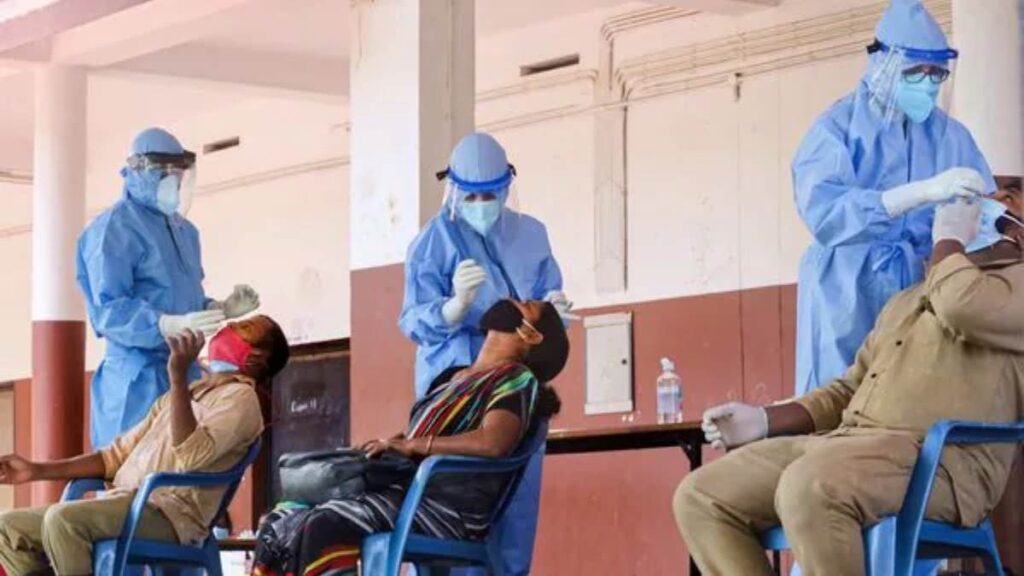Several COVID-19 cases have recently been reported in Delhi, Karnataka, Maharashtra, Andhra Pradesh, and other regions.
Multiple COVID-19 cases have been reported in (covid cases delhi) Delhi, Karnataka, Maharashtra, Andhra Pradesh, and other parts of the country in recent days. According to a PTI report, Delhi alone has recorded 23 coronavirus cases — the first such spike in three years.
In Bengaluru, a nine-month-old baby boy tested positive for COVID-19, health officials confirmed on Friday. Meanwhile, Kerala has reported 273 cases in May alone.
In response to the rising cases, the Delhi government has issued an advisory instructing all hospitals to ensure preparedness, including the availability of beds, oxygen, medicines, and vaccines.
The advisory also urged all healthcare institutions to send positive COVID-19 samples to Lok Nayak Hospital for genome sequencing, enabling early detection of new variants.
“In view of the recent rise in COVID-19 cases, all medical directors, superintendents, and administrators of government and private hospitals are advised to ensure hospital preparedness, including the availability of beds, oxygen, antibiotics, essential drugs, and vaccines,” the advisory stated.
Despite the surge, Health Minister Pankaj Singh urged the public to remain calm and not panic.
In Uttarakhand, where two COVID-19 cases have been reported, authorities have issued a high alert across several districts and intensified preventive measures.
NB.1.8.1 and LF.7 variants in India
As of May 2025, the World Health Organization (WHO) classifies LF.7 and NB.1.8 subvariants as Variants Under Monitoring, not as Variants of Concern or Variants of Interest. But these are the variants that are reportedly driving the rise in Covid cases in China and parts of Asia.
According to data from the Indian SARS-CoV-2 Genomics Consortium (INSACOG), one case of NB.1.8.1 was identified in April in Tamil Nadu and four cases of LF.7 were detected in Gujarat in May.
In India, the most common variant remains JN.1, comprising 53 per cent of samples tested, followed by BA.2 (26 per cent) and other Omicron sublineages (20 per cent).
| State/UT | New Cases (Approx.) | Remarks |
|---|---|---|
| Delhi | 23 | First spike in 3 years |
| Karnataka | 1 | 9-month-old baby tested positive in Bengaluru |
| Kerala | 273 (May total) | Highest recent surge |
| Maharashtra | Not specified | Cases reported in recent days |
| Andhra Pradesh | Not specified | Cases reported |
| Uttarakhand | 2 | High alert issued in several districts |
| Other States | Sporadic cases | Monitoring and testing ongoing |






Pingback: "Coronavirus Cases in India: COVID-19 Surge Sparks Concern Again, Cases Cross 1000 Mark; What Was Feared in Delhi Has Come True"